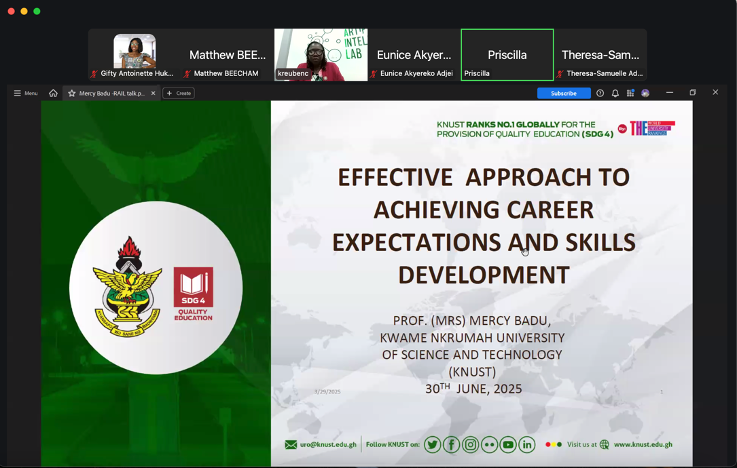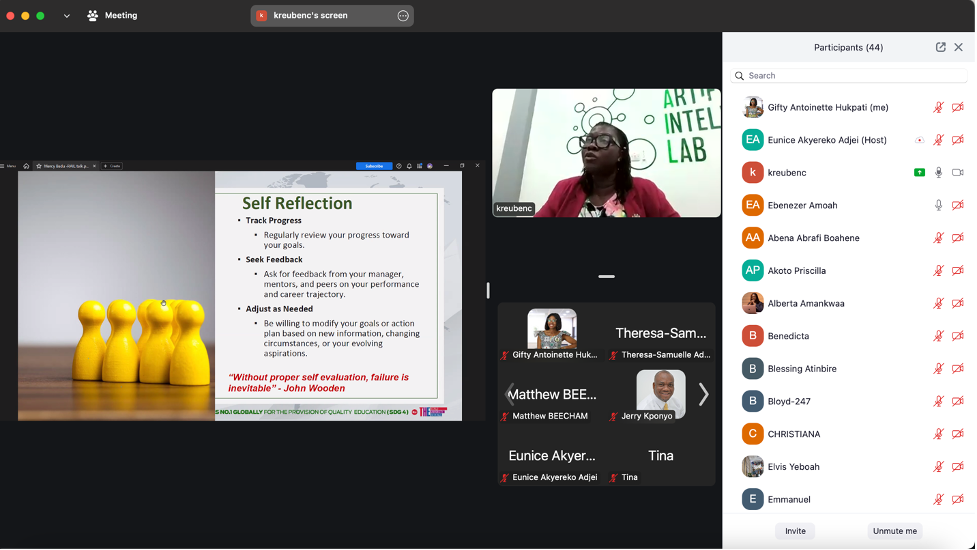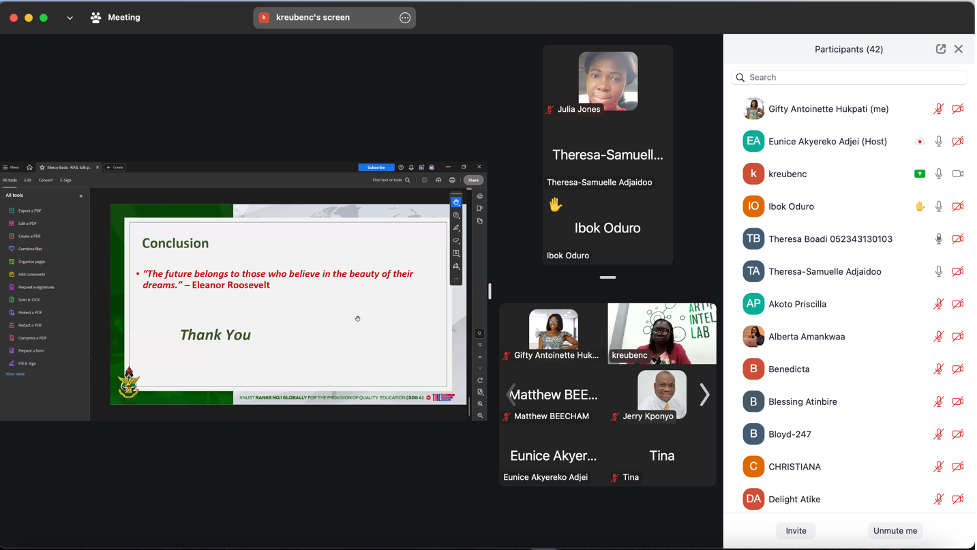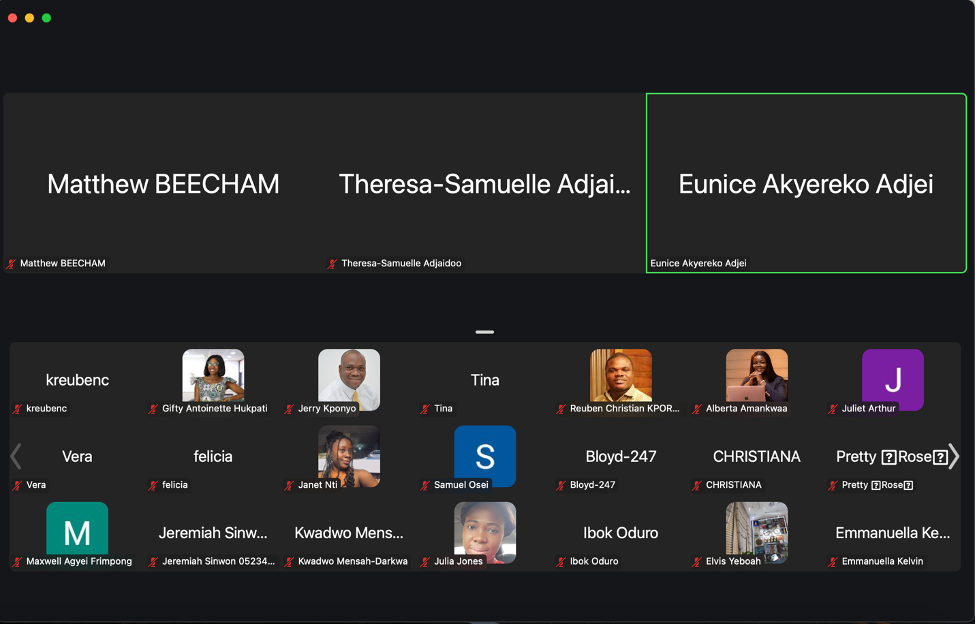The Women in Technology and AI in Education themes of the Responsible AI Lab (RAIL) and the AI for Sustainable Development (AI4SD) initiative hosted a special Mentor-Mentee Meet on 30th June, 2025, offering students practical guidance on career development, personal growth, and long-term goal setting. In his opening remarks, Prof. Jerry John Kponyo, PI and Scientific Director of RAIL and Project Lead for AI4SD, thanked mentors for accepting the call. “We are privileged to have your time,” he said, urging attendees to seize the opportunity to learn.

Prof. Mrs. Mercy Badu challenged participants to pursue careers with intention, clarity, and resilience. Prof. Badu’s presentation opened with a reflection on the meaning of career, stressing that it’s not just about securing a job, but about having a clear purpose, passion, and the drive to make a real impact. Quoting Napoleon Hill, she emphasised that “the one quality that one must possess to win is definiteness of purpose, which is a burning desire to possess it.” She called on students to reflect on their motivations, strengths, values, and goals, encouraging self-assessment as a foundational tool for building a fulfilling career. “You must understand who you are and what gives you satisfaction. If you’re not fulfilled, you’ll burn out. You won’t make an impact,” she said.

Touching on the realities of student life, Prof. Badu acknowledged that many students enter their courses by chance rather than choice. But she highlighted how, over time, students often grow to embrace and excel in their chosen fields if they commit to growth and exploration. Prof. Badu also encouraged visibility and self-promotion, urging participants not to stop showcasing their achievements. “Blow your own horn,” she said. “Let the world know what you’re capable of.”

The event transitioned into a Q&A and open discussion led by Dr. (Mrs.) Theresa-Samuelle Adjaidoo, where mentors and mentees shared reflections and raised issues. One recurring theme was the importance of mentees taking initiative and staying engaged in the mentorship process.
Concerns were raised about some mentees being inactive, prompting a call for renewed commitment. Mentees were admonished to contact their mentors for career guidance and mentorship.

Dr. Eunice Akyereko Adjei, Women in Technology and AI in Education theme lead, emphasised the importance of follow-through and announced channels for new mentees to register and be paired with mentors. She also urged mentors to complete the impact assessment form to support the programme’s growth.
The Career and Mentorship program has about 125 mentees across all programs in the university, and about 45 mentors are from diverse industrial fields like Airbus, Net Zero Group in the UK and lecturers in STEM fields across Ghana.